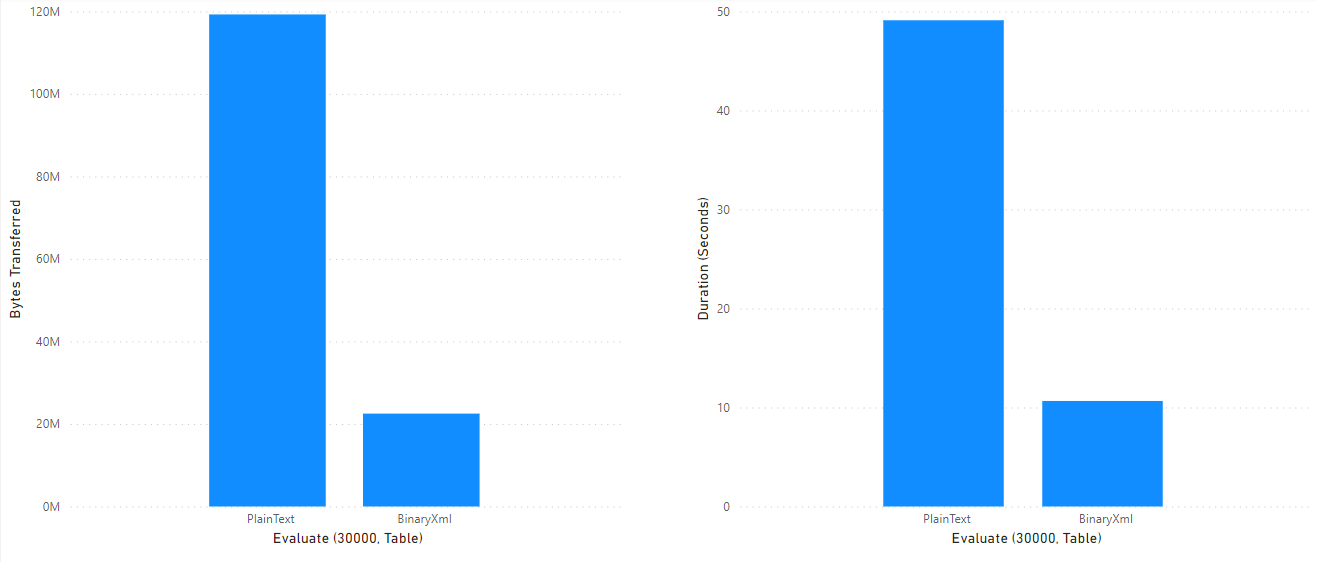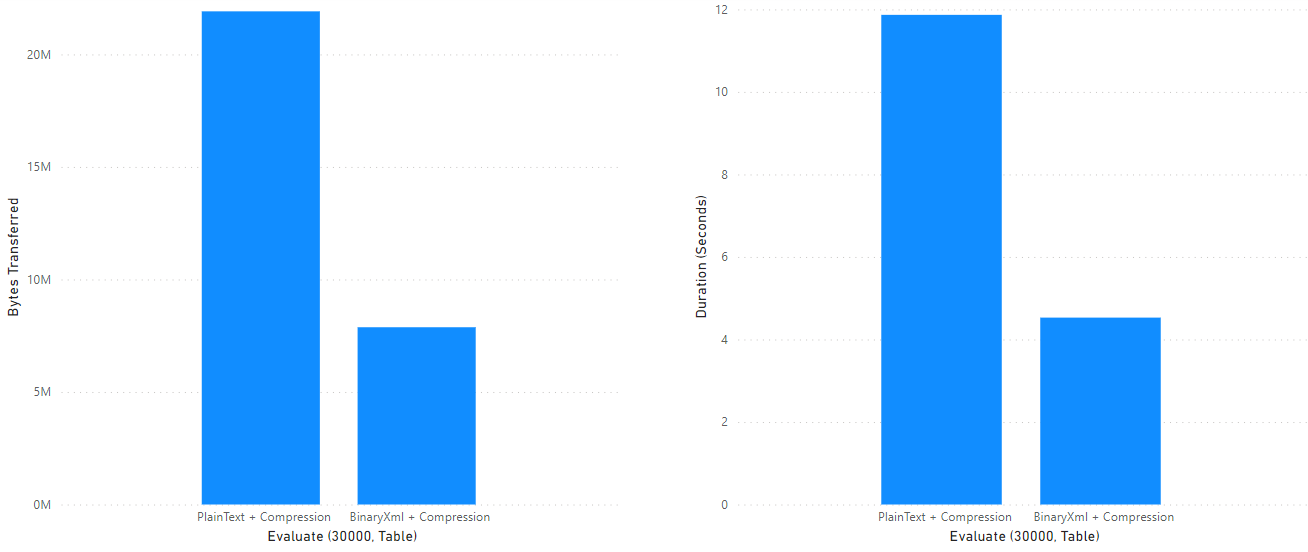Improving the communication performance of XMLA-based tools
We are thrilled to announce that we have made some significant performance improvements to the XMLA-endpoint communication in Power BI. Specifically, we have switched XMLA-based communication from plain text XML to binary XML and enabled compression for the .NET client libraries. Make sure you upgrade to version 19.65.12.0 or later. You can always find the latest versions on the Analysis Services client libraries download page. Also make sure you update any tools that ship the Analysis Services client libraries as part of their binaries. This can greatly reduce the data volume and accelerate the data transfer between XMLA-based clients and the Power BI Service. It also benefits the service-internal communication wherever the XMLA protocol is used.
Prior to this improvement, only the Microsoft Analysis Services OLE DB Provider (MSOLAP) supported compressed binary XML. The managed Analysis Services Management Objects (AMO/TOM) and ADOMD client libraries did not use it. This meant that applications that used the managed client libraries, such as Tabular Editor, DAX Studio, and automation, did not benefit from compressed binary XML communication.
| Performance without compression |  |
| Performance with compression |  |
As the above comparison reveals, compressed binary XML has compelling advantages over plain text XML. By enabling compressed binary XML in our managed client libraries by default, any client application that uses our managed client libraries can enjoy faster and more efficient XMLA communication. We hope you are as excited as we are about this performance improvement. To learn more about how to use XMLA endpoints with the Power BI Service, please see the article Dataset connectivity with the XMLA endpoint in the product documentation.
As a side note, compressed binary XML responses have been enabled for Power BI, but Azure Analysis Services continues to use plain text. We might enable compressed binary XML for Azure Analysis Services in the future.




